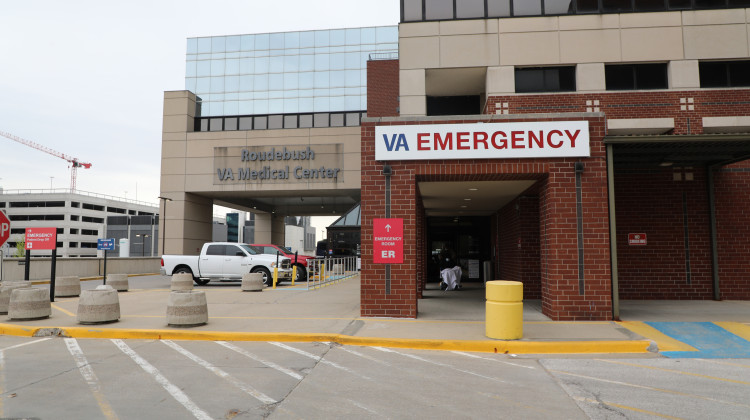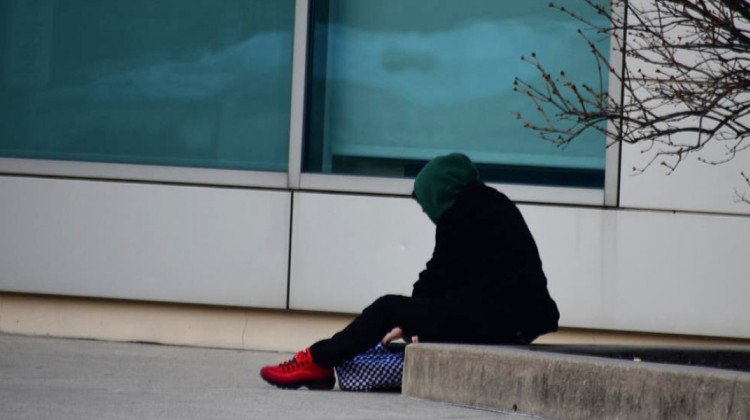It was around this time a year ago that the pandemic began to dominate our lives. To mark that milestone, throughout March, we'll reflect on the stories WFYI, Side Effects Public Media and IPB News told, revisit people we spoke with, commemorate those we lost, and ask about your experiences.
Today we bring reflections from Gleaners Food Bank of Indiana President and CEO John Elliott. Gleaners provides food to local pantries, schools and other nonprofits addressing food insecurity.
The following transcript has been edited and condensed for clarity.
Elliott: If you think about how quickly in the first days or a couple of weeks of the pandemic, we had to deal with every job description and role in the organization changed. We did keep open mobile pantries. And we kept open the traditional brick and mortar pantries, which are the highest percent of our food distribution. But even those two models changed dramatically.
We had to go to pre pack boxes and drive thru format for pantries. And in order to handle the multiples of increase in volume of households in need. We built two new distribution channels in setting up our first ever home delivery program. We went from zero to a peak of 40,000 a week, very quickly.
We realized one way we might help is to bring temporary workers who were losing their paychecks downtown, onto our payroll. And they in turn, have done a phenomenal amount of work for us and they kept their paychecks and they didn't end up in the food line with their families.
It pains me to have so many neighbors food insecure. And as we all know, food insecurity doesn't happen in isolation. So that meant those families were also dealing with perhaps unemployment or education challenges or mental and physical health. Obviously, I hate to see that happening to our neighbors.
But when I quickly saw the pattern that donors were going to keep pace, not just our historical donors, but thousands of new donors stepped up and began to help Gleaners and others increase their giving ... we would have the dollars to spend on historic levels of food purchasing, and that we would not run out of food.
I anticipated that all of our existing hunger relief partner, then I knew they would need more from us. What I didn't anticipate is that dozens of other nonprofits would have such an overwhelming need to feed their clients in order to be able to perform their core mission. And that they would need Gleaners to provide food and and take that barrier out of their way so they can focus. And could we help. So we did.
In terms of what I really want our neighbors to focus on whether they're affected by food insecurity, or we're all relying on them for resources are volunteer work. As a community, we have to distinguish between the medical recovery timeline for this pandemic, and the economic recovery timeline for so many families that are affected.
It's not that the 2008 and 2009 economic downturns the perfect parallel, but certainly, it does teach us one lesson. It was 2010 before we saw the peak of food insecurity, and 2014 before we were getting back to normal levels of food insecurity, not saying this pandemic will have a six year cycle, but I am saying it will have a multi year recovery for families in need.
I do worry that donors will not stick with us at heightened levels of giving for that whole pattern and there's a risk that we'll we'll run out of resources. There's quite a mix and we need to resist the temptation to do a quick easy win with one challenge a family's facing and do our best to come together as the providers of help and give them simultaneous solutions ... the way they face the simultaneous challenges.
 DONATE
DONATE









 Support WFYI. We can't do it without you.
Support WFYI. We can't do it without you.